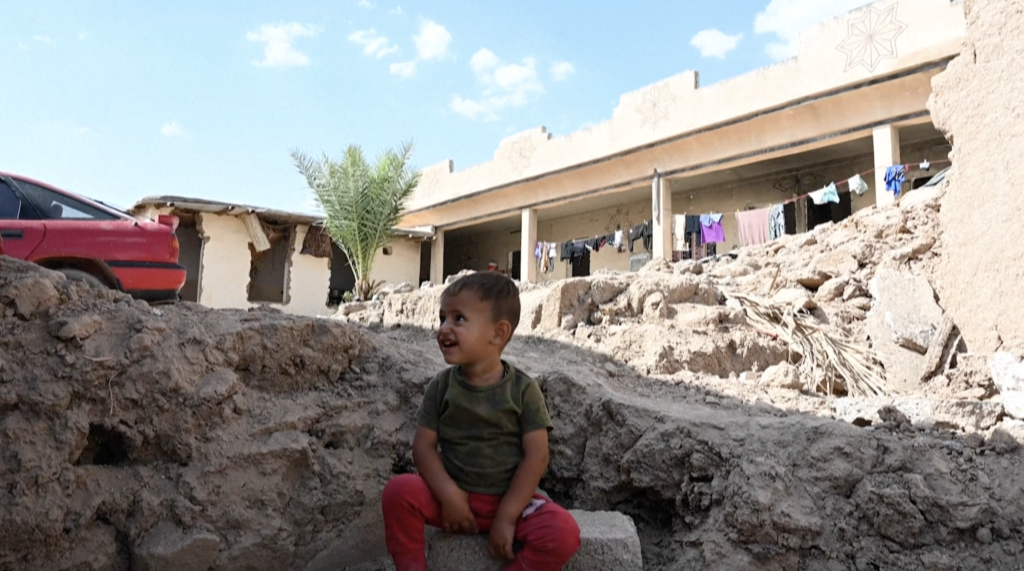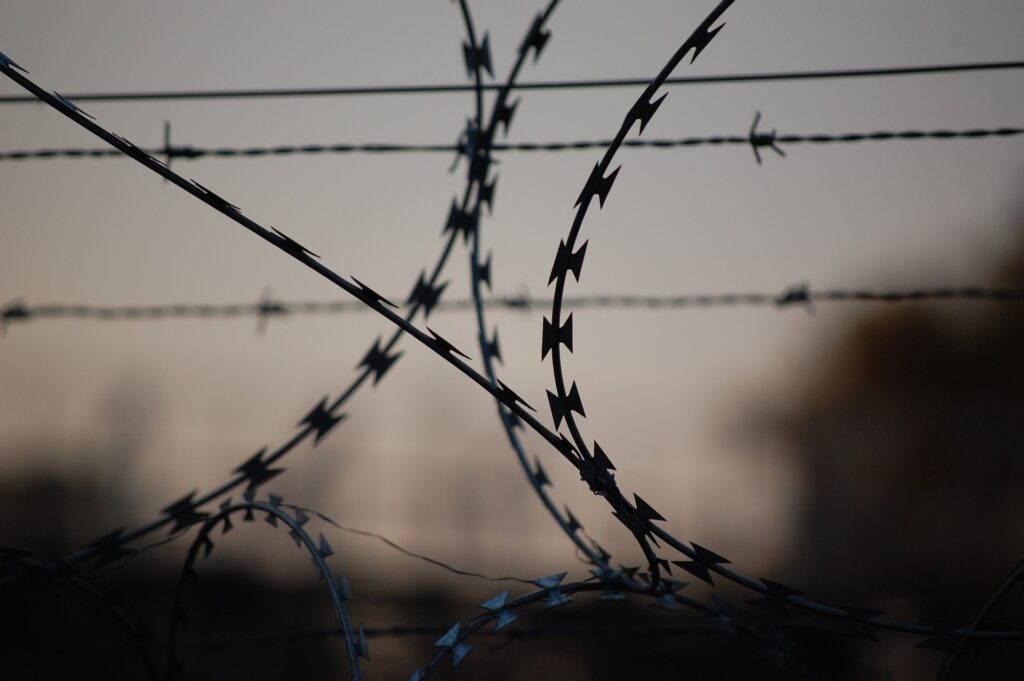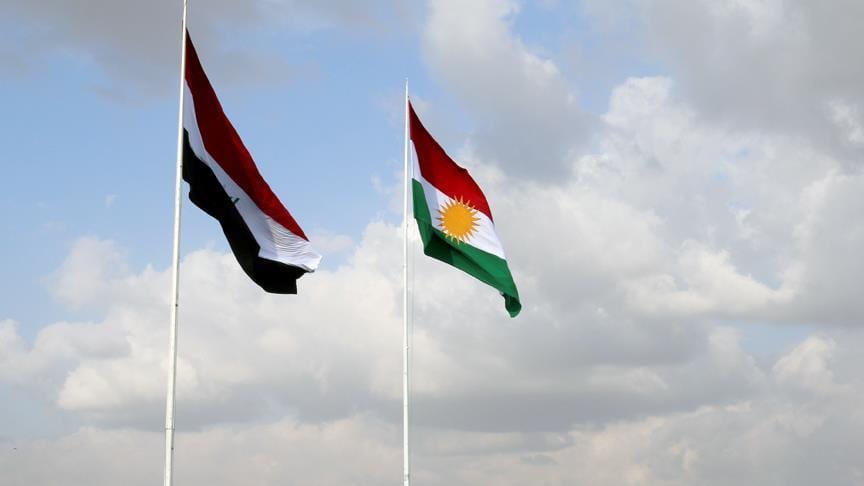Baghdad is Equating Military Conscription With Iraqi Identity

Conscription is highly politicised and the use of military and paramilitary institutions has become another lever for Iraqi politicians to exploit.
What does it mean to be “Iraqi”? This is a question that is now being faced not only by Iraq’s politicians in the run up to the elections next month, but also by the Iraqi people themselves who are questioning what has become of their country almost two decades after it was invaded by the United States and a new class of political elites took over.
Iraq Report: "Kadhimi is also striving to show that he can achieve better results for Iraqis on two endemic issues that have plagued the country for decades - its legless economy and its perennial energy crisis" - https://t.co/8G5bSy3xt9
— The New Arab (@The_NewArab) September 18, 2021
As incumbent Prime Minister Mustafa al Kadhimi weighs up his options in the upcoming vote, perhaps one of his more divisive policy decisions recently was to sanction the revival of Iraq’s military conscription law that was abolished by US military governor Paul Bremer in 2003 – the same year the original Iraqi armed forces were disbanded to be replaced by the security forces who were defeated by Daesh in 2014 that we see today.
While the bill has yet to pass a parliamentary vote, the mere fact it is now being touted and linked to the Iraqi national identity will raise significant concerns amongst the youth who will bear the brunt of this law.
The draft in Iraqi history
Ever since the United States and its allies invaded and occupied Iraq, the country’s new elites who collaborated with the invading powers have struggled to engender loyalty to their government. Despite lofty talk of democratic ideals being realised in the country that has long been governed by an assortment of colonial era monarchs, military dictators, and presidents-for-life, Iraqis do not feel as though they have a stake in their country.
Despite the outward appearance of democracy, the Iraq of today is overwhelmed by corruption, nepotism, and gangsterism, leading Iraqis to feel disenchanted and weakening their national sentiments.
In his tweet announcing the revival of conscription, Kadhimi made specific reference to using the armed forces as an institution to “inculcate national values”. To most contemporary readers, that may seem bizarre. How can the armed forces, a tool of hard power which has violence as its raison d’etre, be used as an institution for engendering loyalty to the nation?
However, there is a long tradition of states using it for such purposes for centuries, with some nations who have abolished conscription such as the United Kingdom actively debating whether or not it ought to be brought back to instil national pride and values in today’s youth (unsurprisingly, they are not in favour even if 48 percent of respondents in a 2018 poll were).
In the modern era, military conscription began with the French Revolution and eventually enabled Napoleon Bonaparte to form his Grande Armee which was wildly successful in defeating the smaller, professional standing armies of rival European monarchies that wanted to blot out the revolution to stop its ideas from spreading into their own realms. In fact, Napoleon was only stopped in his tracks when his opponents adopted similar practices and conscription became the norm.
In Iraq, conscription also has a long tradition but its impact on national identity in particular could be more readily seen in the Iran-Iraq War that raged from 1980 to 1988. Earlier in the war, Saddam Hussein was hesitant to enforce lengthy conscriptions as he thought the war would soon end and he could go back to supporting the booming Iraqi economy, creating the adoption of a so-called “guns and butter” economic policy.
In the end, and due to military necessity and the existential threat posed by a committed revolutionary Iran, Saddam filled out the military’s ranks with conscripts to support the professionally trained officer class. University graduates would also be drafted, but they would serve in elite units such as the Republican Guard where their learning would make them into Iraq’s most effective fighting force.
The experiences of the war were formative for Iraq as an emerging power, and their military victories at the end of the conflict that forced a recalcitrant Ayatollah Khomeini to finally agree to a ceasefire is a point of national pride that exists to this day.
Conscription is not a panacea to Iraq’s ills
With the above in mind, it is not surprising that Kadhimi and others, beset by a disillusioned populace who can barely be bothered to turn out to vote anymore and who have been protesting since 2019, are keen to revive the tradition of military service in Iraq.
Kadhimi’s draft bill will see all male Iraqis between the ages of 18 to 35 called for military service of up to two years, with university graduates and employees given a reduction in time to allow them to continue their studies and work. Further, and for those who can afford it, an Iraqi may be totally exempt if they pay a fee in lieu of service, triggering anger amongst the youth who feel that Iraq’s corrupt elites will use money they have pilfered from the public purse to ensure their sons never face combat against armed groups that run rampant in Iraq, including Daesh.
Kadhimi may also be motivated to reinstate conscription as he has been repeatedly humiliated by men supposedly under his command but often acting on the orders of Iran. Since achieving recognition as a formal branch of the Iraqi armed forces in 2017, the Popular Mobilisation Forces (PMF), which began life as an informal umbrella of dozens of primarily pro-Iran Shia militias, have repeatedly defied the orders of their commander-in-chief and held Iraq hostage to their political ambitions that are in lockstep with Iran. By having a conscript force at his disposal, he and future prime ministers may seek to use them to balance against the PMF.
However, and considering the median age in Iraq is 21, younger voters who may not be so keen on taking up arms to fight yet another politician’s wars may send their votes to parties who oppose conscription (assuming they bother to vote at all), with even PMF chief Falih al Fayyadh restoring 30,000 militiamen to their posts and salaries just before the crunch election on 10 October. This demonstrates that the issue is highly politicised and that the use of military and paramilitary institutions has become yet another lever for Iraqi politicians to pull in order to gain support.
As such, and until Iraq resolves its deep structural defects relating to obvious unfairness and graft, having a nation under military conscription is hardly going to do more than enrage an already frustrated population. The fact that richer Iraqis and the sons of wealthy and corrupt politicians will be able to pay the state off to dodge the draft will only deepen Iraqis’ views that there is one rule for the elite, and another for the poor who will shoulder the burdens of the decisions of politicians who have not looked out for their interests for two decades.



